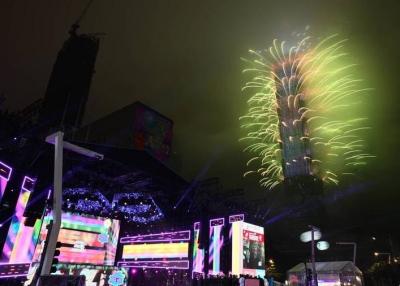International trade is part of the solution to the global food crisis and not one of its causes, the head of the WTO said on Sunday.
Global integration represented by trade enabled food to be transported from where it could be produced efficiently to where there was demand, Director-General Pascal Lamy said.
Geography meant many countries — Egypt, for example — could never be self-sufficient in food, he said in a speech prepared for an International Food and Agricultural Trade Policy Council conference in Salzburg, Austria.
“International trade was not the source of last year’s food crisis,” Lamy said. “If anything, international trade has reduced the price of food over the years through greater competition, and enhanced consumer purchasing power.”
Sharp rises in food prices in 2007 and last year led to riots in many countries over food shortages. Prices have since come off their peaks but many experts argued agricultural trade exacerbated the problem and was not in the interest of poor farmers or consumers in poor countries.
Lamy said Olivier De Schutter, the UN special rapporteur on the right to food, had condemned an excessive reliance on trade in the pursuit of food security, while some farmers’ groups had also called for greater self-sufficiency.
Trade could not be behind the volatility in food prices, as agriculture accounts for less than 10 percent of world trade, while only 25 percent of world farm output is traded globally, compared with 50 percent of industrial goods, Lamy said.
“To suggest that less trade and greater self-sufficiency are the solutions to food security would be to argue that trade was itself to blame for the crisis,” he said.
Developing countries were becoming more competitive in farm trade, with agricultural exports from developing to developed countries rising 11 percent a year between 2000 and 2007, faster than the 9 percent growth in trade in the other direction.
The share of personal incomes spent on food in the poorest countries was declining, he said.

The Taipei MRT is open all night tonight following New Year’s Eve festivities, and is offering free rides from nearby Green Line stations. Taipei’s 2025 New Year’s Eve celebrations kick off at Taipei City Hall Square tonight, with performances from the boy band Energy, the South Korean girl group Apink, and singers Gigi Leung (梁詠琪) and Faith Yang (楊乃文). Taipei 101’s annual New Year’s firework display follows at midnight, themed around Taiwan’s Premier12 baseball championship. Estimates say there will be about 200,000 people in attendance, which is more than usual as this year’s celebrations overlap with A-mei’s (張惠妹) concert at Taipei Dome. There are

NEW YEAR’S ADDRESS: ‘No matter what threats and challenges Taiwan faces, democracy is the only path,’ William Lai said, urging progress ‘without looking back’ President William Lai (賴清德) yesterday urged parties across the political divide to democratically resolve conflicts that have plagued domestic politics within Taiwan’s constitutional system. In his first New Year’s Day address since becoming president on May 20 last year, Lai touched on several issues, including economic and security challenges, but a key emphasis was on the partisan wrangling that has characterized his first seven months in office. Taiwan has transformed from authoritarianism into today’s democracy and that democracy is the future, Lai said. “No matter what threats and challenges Taiwan faces, democracy is the only path for Taiwan,” he said. “The only choice

CORRUPTION: Twelve other people were convicted on charges related to giving illegal benefits, forgery and money laundering, with sentences ranging from one to five years The Yilan District Court yesterday found Yilan County Commissioner Lin Zi-miao (林姿妙) guilty of corruption, sentencing her to 12 years and six months in prison. The Yilan District Prosecutors’ Office in 2022 indicted 10 government officials and five private individuals, including Lin, her daughter and a landowner. Lin was accused of giving illegal favors estimated to be worth NT$2.4 million (US$73,213) in exchange for using a property to conduct activities linked to the 2020 Chinese Nationalist Party (KMT) presidential and legislative election campaigns. Those favors included exempting some property and construction firms from land taxes and building code contraventions that would have required
TECH CORRIDOR: Technology centers and science parks in the south would be linked, bolstering the AI, semiconductor, biotech, drone, space and smart agriculture industries The Executive Yuan yesterday approved a “Southern Silicon Valley” project to promote the development of an artificial intelligence (AI) and semiconductor industry in Chiayi County, Tainan, Pingtung County and Kaohsiung. The plan would build an integrated “S-shaped semiconductor industry corridor” that links technology centers and science parks in the south, Executive Yuan spokesperson Michelle Lee (李慧芝) said yesterday after a Cabinet meeting. The project would bolster the AI, semiconductor, biotech, drone, space and smart agriculture industries, she said. The proposed tech corridor would be supported by government efforts to furnish computing power, workforce, supply chains and policy measures that encourage application and integration